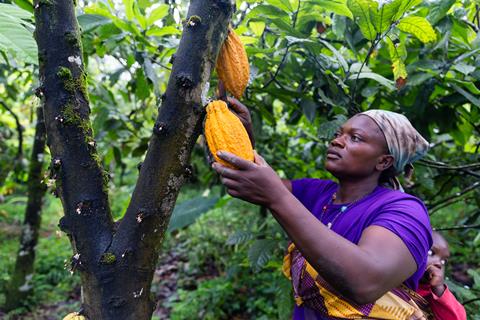
A cocoa boom in Cameroon, driven by record high commodity prices and falling production by other key producers, means the country risks “becoming the next deforestation hotspot”, a new report by Mighty Earth has warned.
Cameroon, now the world’s fifth-largest cocoa producer, was looking to capitalise on productivity declines in Ghana and Ivory Coast due to global heating, crop disease, and outdated farming practices, said the campaign group’s new study, ‘Cameroon on the brink: Cocoa’s New Deforestation Frontier’, published today.
The country had set an ambitious goal to triple production by 2030, the report added, However, this was also “increasing pressure on the country’s forests and hugely biodiverse ecosystems”, it warned, highlighting how some districts of Cameroon had lost as much as 43% of their forest coverage since 2020.
A total of 64 districts in the country had lost at least 10% of their forests, the report revealed, with 782,797 hectares of forest loss in Cameroon, equivalent to 4.2% of the country’s total forest cover, since 2020.
A surge in cocoa-driven deforestation near the Nkondjock district, for example, which is adjacent to the Ebo Wildlife Reserve, posed “a risk to the habitat of critically endangered charismatic megafauna such as western lowland gorillas and forest elephants”, said Mighty Earth.
Some 80% of Cameroon’s cocoa output was exported to the EU, with a significant amount of that figure ultimately ending up in UK retailers.
But amid an “increasing threat to the country’s forests and wildlife”, it was now “falling short” on compliance with the new EU Deforestation Regulation, which is due to come into force on 30 December, said the campaign group.
Analysis in the report revealed that cocoa companies still lacked visibility into their Cameroonian supply chains and were falling short in building the traceability systems needed for the compliance required by regulations, which require farm-level geolocation data to prevent cocoa expansion into forest areas.
And despite the relatively higher farmgate prices in Cameroon than in Ghana or Ivory Coast, some 69% of cocoa farming households still lived below the poverty line, with farmers receiving less for their beans due to the dominance of ‘coxeurs’.
These intermediaries took “substantial margins, leaving farmers underpaid and perpetuating a supply chain that remained opaque and difficult to trace”, the report claimed.
In this system, beans from deforested areas were often mixed with those from monitored farms, further eroding traceability and threatening companies’ deforestation-free sourcing commitments, it added.
Over the past decade, major cocoa traders such as Cargill, Barry Callebaut, and Olam, plus chocolate manufacturers including Hershey, Godiva, and Nestlé, had all publicly committed to achieving deforestation-free supply chains, many by 2025 or earlier, the group noted.
Read more: Lavazza warns new EU deforestation rules will be ‘very tough’ for coffee producers
But despite these pledges and ongoing efforts to build a national traceability system in Cameroon, it said its findings showed “that real-world implementation continues to lag far behind corporate commitments”.
Forest destruction
The publication of the report follows warnings by environmental group Global Witness in March that a lack of regulation of imported goods to the UK has helped destroy an area of global forest equivalent to the size of Liverpool. Thousands of hectares of deforested land were linked to the imports of commodities such as cattle products, soy, oil palm, cocoa, coffee, and rubber in 2024, data compiled by Global Witness showed.
However, there is now a growing clamour for the EUDR’s already-delayed implementation to be put back by another year, with the Financial Times revealing in June that the likes of Cadbury owner Mondelez had been lobbying the EU to delay implementation of the rules in the face of record high cocoa prices, as well as political pressure in the US.
The regulation will ban imports into the EU of seven commodities, including coffee, cocoa and palm oil, from being sold in Europe if they were grown on deforested land. Producers will face heavy fines if found to be in breach of the rules.
“Cocoa-driven deforestation is fundamentally linked to poverty – when farmers can’t earn enough from existing land, expanding into forests becomes a survival strategy,” said Mighty Earth’s senior advisor for Africa Amourlaye Touré.
“With most farmers in Cameroon living below the poverty line, direct financial incentives – such as better prices for deforestation-free cocoa or technical assistance to boost yields are critical to protecting Cameroon’s forests and the critically endangered wildlife that live there,” Touré said. “And to avoid a repeat of the massive forest loss the cocoa industry has driven in Ghana and Cote d’Ivoire.”







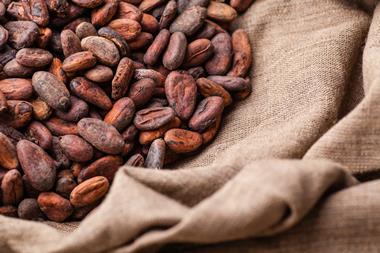
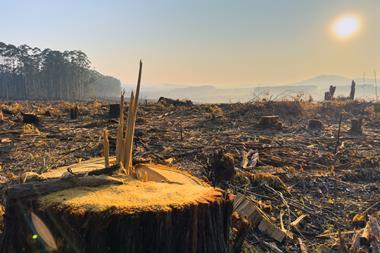
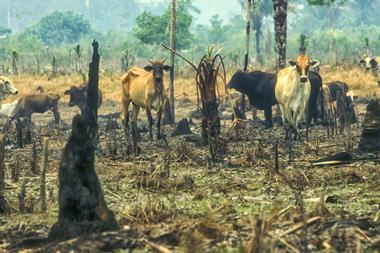
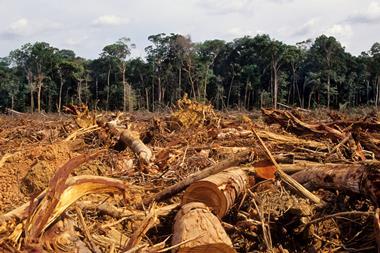
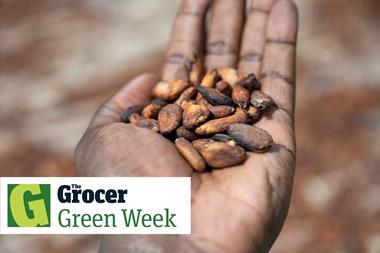
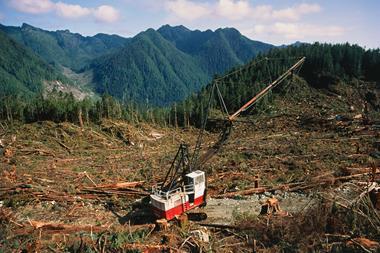






No comments yet